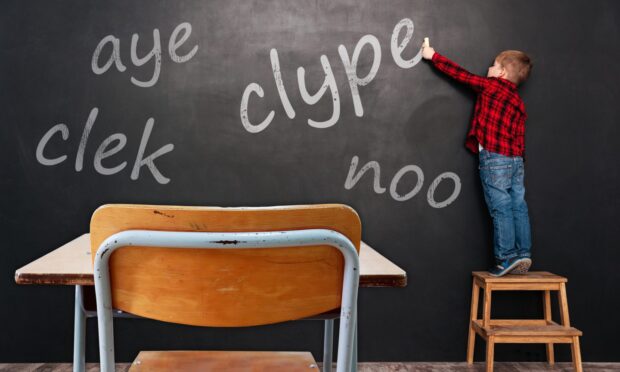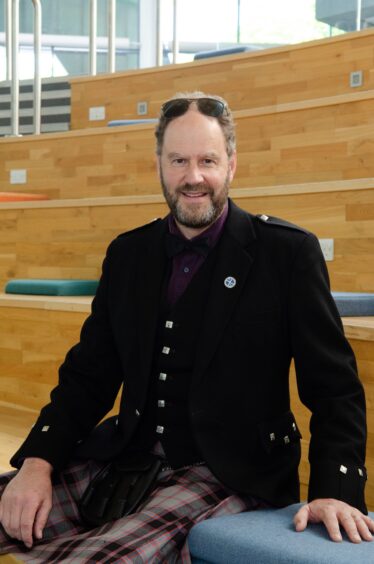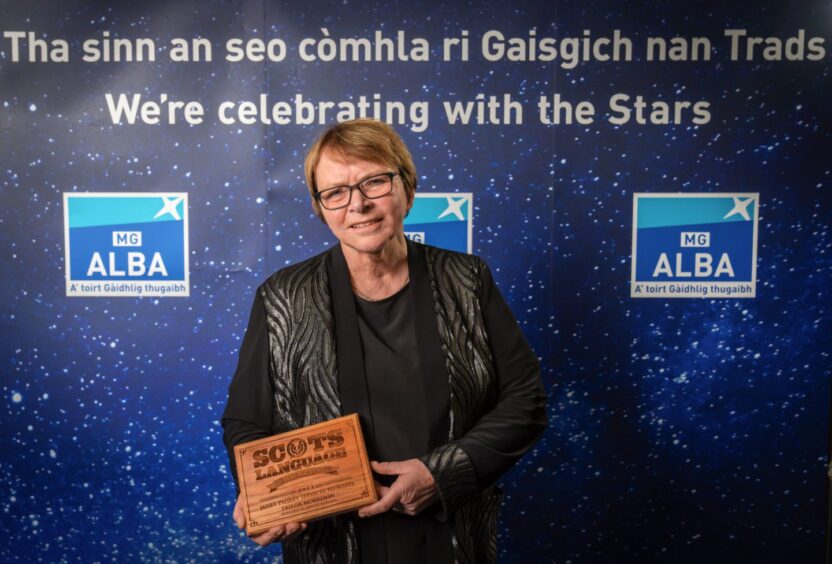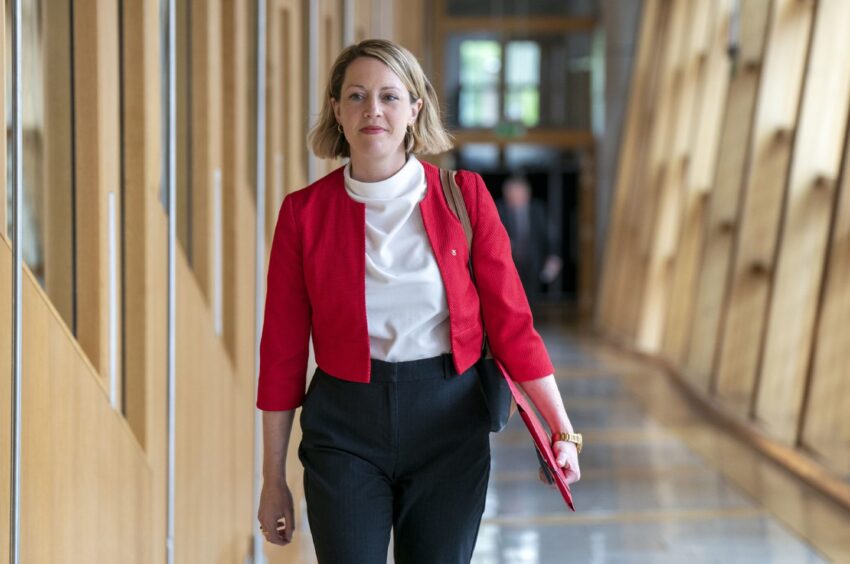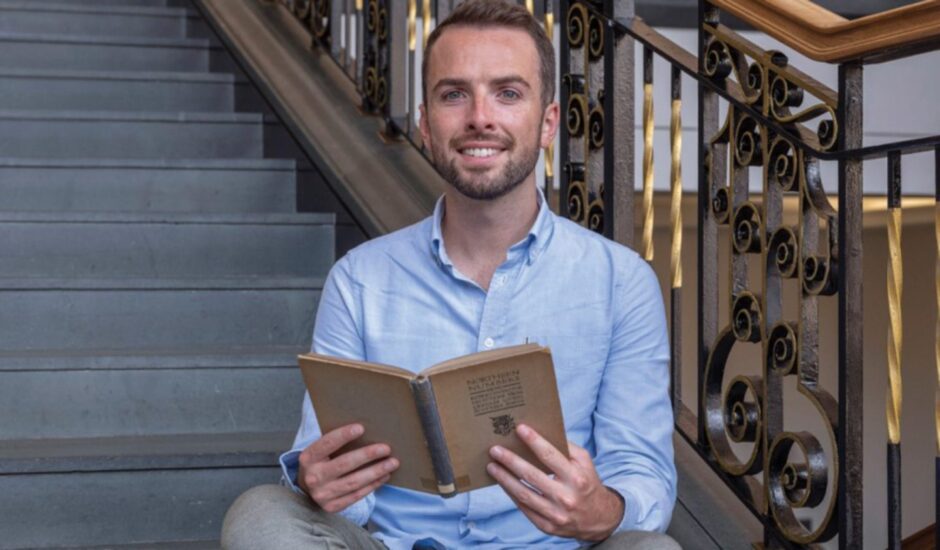There was a red circle in my school jotter – a blemish standing out among the ticks.
It outlined a simple word which I had included in a sentence – but if one word can mean a lot, then this one was loaded.
We are in the late 1980s Aberdeen, and I would have been eight or nine years old. It was the era of big box TVs, Bros and flumes at Aberdeen Beach Leisure Centre. My class project was about life in Scotland during the Middle Ages, and I’d toiled over the homework – but I was left crestfallen when it was returned and I opened the book and saw the said red pen.
You see, I had written ‘the merchants selt ribbons’.
My mum was mortified and guilt-ridden. And I was confused – that’s how it was said was it not? It was explained to me that I’d used the Scots rather than the English word. The whole incident spawned something my family would later jokingly call “fa says fit” – because despite best efforts to “speak proper” we would still (sometimes) talk “broad”.
Using Scots in the classroom and in schoolwork was a hard no – until recent years that is. It has made its way out of the forbidden red pen obscurity it was consigned to for decades, and is now being actively encouraged.
News Scots course for teachers
And this week saw the announcement that more than 120 teachers have signed up to a training course on embedding Scots language into the classroom.
The first-of-its-kind, it will be delivered by the Open University, with funding supplied by the Scottish Government. Teachers from across Scotland are signed-up to the online course.
Prior to its launch there was a pilot scheme at Banff Academy. Among those who have been involved in the development of the course is Dr Jamie Fairbairn, who is the principal teacher at the faculty of humanities at Banff Academy.
He said: “It’s absolutely fantastic that 120 teachers have signed up to the Scots professional training course. This was beyond our expectations and it does show that there is a solid demand from teachers all across Scotland for Scots language to have a space in schools.
“It helps validate Scots-speaking learners and also non-native speakers who are interested in learning about the language. The course will help teachers to gain confidence in creating learning opportunities for bairns, so that they can study the history of Scots, its glittering literature and get creative themselves with stories and poetry.”
What impact did the Scots pilot have at Banff Academy?
Speaking of the impact the pilot had at Banff Academy, Jamie said: “It has been great to hear pupils confidently spikkin and writing their ain mither tongue in classes. The pilot scheme was very well received at Banff Academy, both by teachers and pupils. Scots lessons have been going on at Banff for a decade, but the course brought in more teachers from a wide variety of subjects.”
The course covers the early years of education all the way to upper secondary, and focuses on literature and creative writing, music, song and storytelling, Scots in social studies, Scots as a language option as well as other topics.
Speaking of his hopes for the impact it will have, Jamie said: “I just think the course will translate that passion and purpose that hundreds of teachers clearly have for Scots into confident delivery of lessons and learning programmes which will validate so many youngsters.
“The bairns will see their mither tongue as an asset, something that is valuable in their community and across Scotland, something that will help their own literacy and knowledge about their country’s amazing literature, and something that is important that they can be proud of and learn lots more about.”
Punished for using Scots in class
Frieda Morrison, is director of Scots Radio and the Doric Film Festival, which will be staged at RGU in Aberdeen on June 14.
She is also chair of the Doric Board, which has financially supported 19 new Doric projects in the north-east over this year, with a total of 79 in the last four years.
Frieda told the P&J that the new course was a “significant step” for the promotion of Scots.
She said: “It’s not that long ago, and within my memory, when pupils were sent out of the classroom for daring to spik in Scots.
“I wish I had a pound for every time someone told me a horror story of how they were punished for daring to spik Scots in the classroom – the language that their parents and grandparents spoke at home. Just imagine the confusion that went on in the minds of young pupils being punished and disciplined for daring to spik like the people they loved and respected.
“With this new course, at last we are putting the record straight and my hopes are, that young people can feel proud of their roots, their heritage and their own voices. Looking further down the line, I sincerely hope that this is laying a strong foundation to creating a legacy that will lead to more broadcasting in Scots. We need to have confident Scots being spoken on our airwaves reflecting oor ain voice.”
Keeping the language alive
Frieda has been creating programmes with her team at Scots Radio for 10 years, and more recently has seen a shift in attitudes towards Scots, she explained: “In the last five years we have seen attitudes change gradually. Now people want to know more about what we are talking about on the programme, as opposed to why.
“In the past it was the older generation that tried to influence their younger members of the family to spik Scots. Now many of the younger generation have joined them keeping their language alive.”
The course was launched earlier this week by the Education Secretary Jenny Gilruth at the Scottish Storytelling Centre in Edinburgh.
She had previously described it as an “important step” towards protecting the Scots language in Scottish education.
It comes as the Scottish Languages Bill makes its way through the Scottish Parliament. Launched on St Andrew’s Day last year, it would give the Gaelic and Scots languages official status. Schools across the country would be supported to introduce Scots into the curriculum under the proposals, with the Government required to promote Scots language education
New course is ‘really exciting’
Shane Strachan, whose work as a writer has taken him into schools, said: “In the 90s and noughties I was discouraged from speaking Scots. I’m from Fraserburgh and Peterheid far we spik really broad Scots.
“There was maybe a Burns competition and some bothy ballads, but other than that there was really a lack of Scots language, culture and promotion. That seems to have changed in the last 10-15 years.”
Speaking of the shift Shane pointed towards policies that have come in around Scots language in schools, as well as the encouragement for teachers to try and get pupils to speak more than one language
He added: “When it comes to the fact that this course now exists it’s really exciting.”
The lecturer in creative writing at Aberdeen University tells me his favourite Scots word is clype – which in English means to tattle or tell tales on someone.
The 2022-23 Scots Scriever said the shift in perceptions of Doric in recent years has been good to see.
‘A different world’
Shane, whose debut poetry collection DWAMS will be published in April, said: “As someone who was told not to speak in Scots and not to write in Scots, I now have a poetry book coming out which has been supported by the Scots language publication grant, funded by the Scottish Government and supported by Scottish Book Trust – that’s just something that didn’t exist six years ago.
He said schools are “crying out” for more materials in Scots, and added: “It’s just a completely different kind of world, thanks to the policies and the funding that’s already been put in place. I think with a bit more support, a bit more funding, a lot could change.
“It’s really interesting to see how much that’s actually been driven by policy changes, and how much folks’ perceptions are changing. That’s probably all thanks to the 2011 census, which showed that 1.5 million people spoke or understood Scots, so it will be interesting to see how things change again after the next census.”
